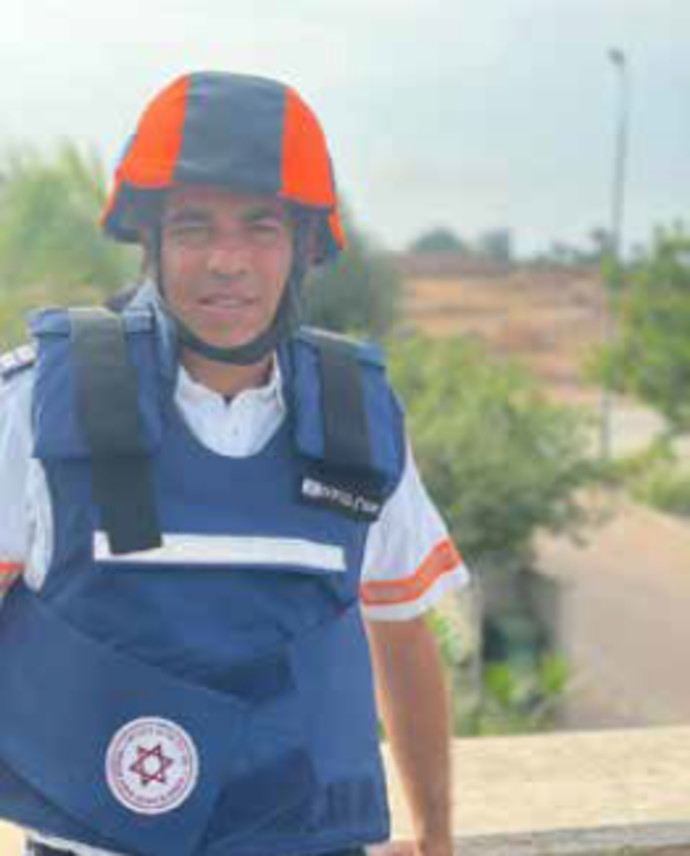Oren Banita is a veteran MDA staff member and a well-respected paramedic at the Sderot MDA station. His wife, Merav Banita, has been a team leader at the Lachish MDA call center for many years. Oren, Merav, and their three children live in Kibbutz Mefalsim in the Gaza Envelope area.
That Shabbat, the Banita family was awoken early in the morning to the sudden sound of the ‘Code Red’ sirens warning of an incoming rocket attack. “It was different from what we’re used to,” recalls Oren. “It was long and intense. Immediately afterward, we heard gunfire inside the kibbutz and a loud explosion. I heard screaming from outside, cries for help. Someone called my name. Two soldiers who had sustained gunshot wounds were brought into my house. My wife Merav and I started treating them right there in the living room.”

Merav and Oren, who are first responders and had MDA medical supplies in their home, spent a long time treating the soldiers. But as the day wore on, time began to run out for their patients, as did their medical supplies. Oren realized that the injured soldiers needed to be taken to an operating room if they were to have any chance of surviving, but the kibbutz was besieged. The terrorists were still inside the kibbutz, there was constant gunfire, and there was no way of leaving or entering. “It was a battleground,” Oren recalls. “A real war zone.”
MDA paramedics are used to making difficult and life-changing decisions, but Oren had never been in a situation like this – having to decide whether or not to try to evacuate the patients, which would mean putting their patients’ and their own lives in danger. Not only might they fail to save them, but they could also become even more of a burden on the military forces and other MDA personnel. It was an incredibly difficult decision to make.
“A real war zone"
Oren decided to try to get the patients to the entrance of the kibbutz, with the help and cover of the combat soldiers, and from there for them to be rescued and evacuated by an MDA armored ambulance. Oren recalls what he witnessed outside his house: “It was a horrific scene; many murdered civilians, their bodies strewn about.” It was only upon his return to the kibbutz that Oren could think about his own children, who had been locked all of these hours in the safe room alone – since both of their parents had been busy treating the wounded in their living room.
When the family was eventually evacuated from the kibbutz, Oren stayed. “This work is what gives me the strength to go on in spite of everything. I had the great privilege of being able to meet the soldiers whom we treated in our home. They were able to walk. It made everything worthwhile.”
